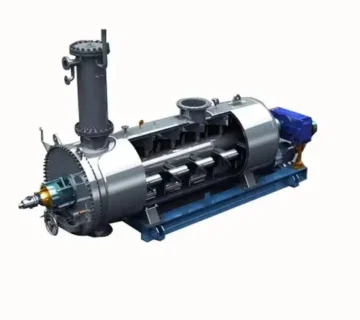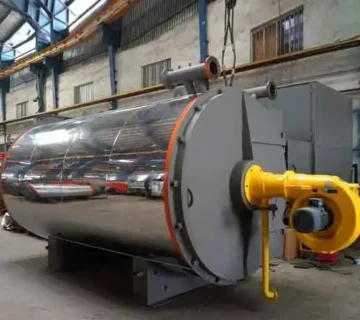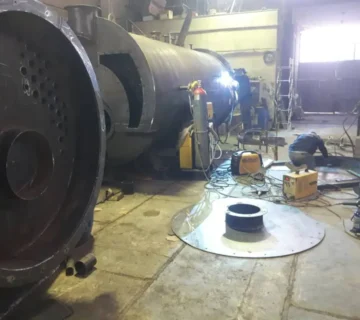The use of waste cooking boilers in the meat industry is a highly effective method for waste management and improving efficiency. Meat industry by-products, such as bones, fats, and other inedible parts, can be processed instead of being discarded. These waste materials are converted into useful products like animal feed or industrial outputs. In this article, we will explore the importance of using waste cooking boilers, their economic and environmental benefits, and their impact on production quality and efficiency.

1. What Are Waste Cooking Boilers?
Waste cooking boilers are industrial devices designed to recycle and reuse animal by-products, particularly in the meat industry. These boilers process waste such as bones, fats, skins, and other inedible parts into useful products. By optimizing production processes, these boilers turn waste into valuable resources, increasing overall productivity.
2. Why Is the Use of Waste Cooking Boilers Important?
a) Economic Benefits
- Reduction in Waste Disposal Costs: One of the biggest challenges in the meat industry is managing waste. Using waste cooking boilers can drastically reduce the costs associated with waste disposal.
- Production of High-Value Products: Waste processed in boilers can be turned into animal feed or even industrial products like industrial oils or gelatin.
- Increased Efficiency: Recycling waste helps optimize production processes, reducing waste and increasing profitability.
b) Environmental Benefits
- Reduction of Environmental Pollution: Recycling waste reduces greenhouse gas emissions and the environmental pollution caused by landfill disposal.
- Conservation of Natural Resources: Reusing waste means fewer raw materials are required, reducing the consumption of natural resources.

3. How Waste Cooking Boilers Work
Step 1: Collection of Waste
Inedible parts like bones and fats are collected and transferred to waste cooking boilers.
Step 2: Cooking and Processing
The boilers use heat to convert these waste materials into final products such as animal fat or proteins used in animal feed.
Step 3: Packaging and Distribution
The final products are packaged and distributed to various industries for use.
4. The Impact of Waste Cooking Boilers on the Meat Industry
- Improvement in the Quality of By-Products: Using waste cooking boilers results in high-quality by-products that can be used in the food and agricultural industries.
- Increased Production Efficiency: By reducing waste and turning it into useful products, the overall efficiency of meat production processes is improved.
- Energy and Water Savings: Modern boilers are designed to minimize energy and water consumption, reducing production costs and helping to protect natural resources.

5. Frequently Asked Questions (FAQs)
Question 1: How do waste cooking boilers help reduce waste disposal costs?
Answer: By converting waste into useful products such as animal feed and industrial materials, waste cooking boilers eliminate the need for waste disposal, significantly reducing related costs.
Question 2: Do waste cooking boilers contribute to environmental protection?
Answer: Yes, by recycling waste rather than discarding it, environmental pollution is reduced, and the consumption of natural resources is minimized.
Question 3: What products are obtained from processed waste?
Answer: Products such as animal fats, proteins for animal feed, and gelatin are produced from processed waste.
Question 4: Does this technology help reduce energy consumption?
Answer: Yes, modern waste cooking boilers are highly energy-efficient, using less water and energy while preventing resource waste.
Question 5: Can the products obtained from waste be used in the food industry?
Answer: Yes, processed waste can be turned into animal feed or gelatin, which are used in various food-related industries.




